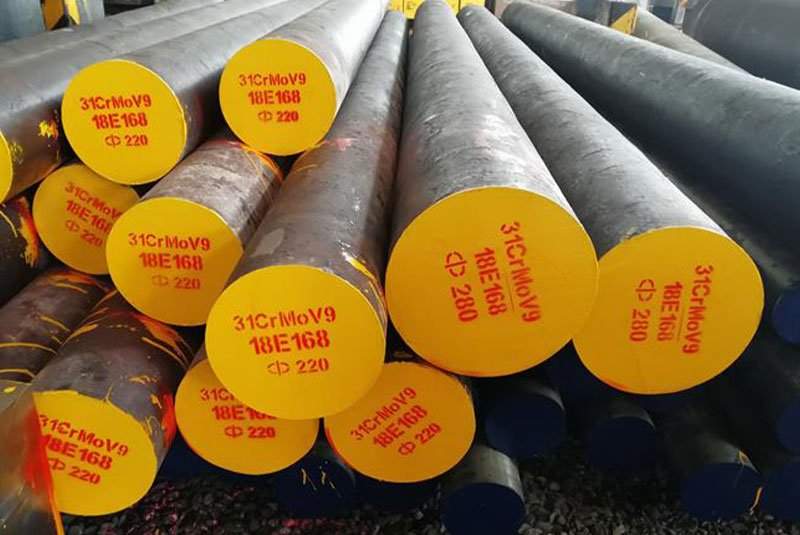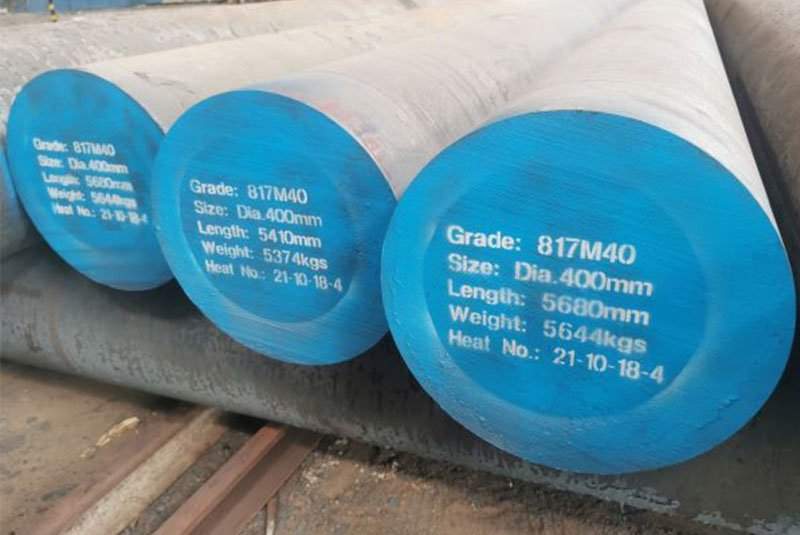Introduction
Alloy steel is a crucial material in various industries due to its enhanced mechanical and physical properties. By adding specific alloying elements, alloy steel can be tailored to meet the demands of diverse applications, from construction and automotive to aerospace and industrial machinery. Understanding the key alloy steel material properties is essential for selecting the right type of alloy steel for your project. This comprehensive guide will delve into the top alloy steel material properties, exploring how they influence performance and why they matter.
What is Alloy Steel?

Definition and Composition
Alloy steel is a type of steel that includes various alloying elements such as manganese, nickel, chromium, molybdenum, vanadium, silicon, and boron. These elements are added to the base iron-carbon mixture to enhance specific properties like strength, hardness, toughness, and corrosion resistance.
Key Alloying Elements and Their Effects
Each alloying element contributes uniquely to the material properties of alloy steel. Understanding these contributions is crucial for selecting the right alloy for specific applications.
- Manganese: Improves hardness, tensile strength, and resistance to wear.
- Nickel: Enhances toughness and corrosion resistance.
- Chromium: Increases hardness, tensile strength, and corrosion resistance.
- Molybdenum: Boosts strength at high temperatures and enhances toughness.
- Vanadium: Increases strength, toughness, and wear resistance.
- Silicon: Improves strength and elasticity.
- Boron: Enhances hardenability and wear resistance.
Table: Common Alloying Elements and Their Effects
| Element | Effect on Alloy Steel Material Properties |
|---|---|
| Manganese | Improves hardness, tensile strength, and resistance to wear |
| Nickel | Enhances toughness and corrosion resistance |
| Chromium | Increases hardness, tensile strength, and corrosion resistance |
| Molybdenum | Boosts strength at high temperatures and enhances toughness |
| Vanadium | Increases strength, toughness, and wear resistance |
| Silicon | Improves strength and elasticity |
| Boron | Enhances hardenability and wear resistance |
Top Alloy Steel Material Properties
Strength
Tensile Strength
Tensile strength refers to the maximum stress that alloy steel can withstand while being stretched or pulled before breaking. This property is crucial for applications requiring materials that can endure high levels of stress without failure.
- High Tensile Strength: Ensures structural integrity under heavy loads.
- Applications: Bridges, high-rise buildings, and automotive components.
Yield Strength
Yield strength is the stress at which a material begins to deform plastically. Below this stress, the material will return to its original shape when the applied stress is removed.
- High Yield Strength: Provides resistance to permanent deformation.
- Applications: Structural beams, frames, and pressure vessels.
Hardness
Hardness measures the resistance of alloy steel to deformation, particularly permanent indentation. This property is crucial for applications involving heavy wear and abrasion.
- High Hardness: Increases wear resistance and durability.
- Applications: Tooling, cutting instruments, and wear-resistant components.
Toughness
Toughness is the ability of alloy steel to absorb energy and plastically deform without fracturing. It is a combination of strength and ductility and is crucial for materials subjected to impact and shock loads.
- High Toughness: Enhances the material’s ability to withstand sudden forces.
- Applications: Automotive crash structures, pressure vessels, and heavy machinery.
Corrosion Resistance
Corrosion resistance is the ability of alloy steel to withstand damage caused by oxidation or other chemical reactions. This property is vital for applications exposed to harsh environments.
- High Corrosion Resistance: Prolongs the material’s lifespan in corrosive environments.
- Applications: Marine structures, chemical processing plants, and outdoor infrastructure.
Wear Resistance
Wear resistance is the ability of alloy steel to resist surface damage caused by mechanical action such as friction, abrasion, or erosion.
- High Wear Resistance: Reduces maintenance and replacement costs.
- Applications: Mining equipment, conveyor systems, and industrial machinery.
Heat Resistance
Heat resistance is the ability of alloy steel to retain its mechanical properties at high temperatures. This property is crucial for materials used in high-temperature environments.
- High Heat Resistance: Maintains strength and stability at elevated temperatures.
- Applications: Power plant components, aerospace parts, and automotive exhaust systems.
Ductility
Ductility is the ability of alloy steel to undergo significant plastic deformation before rupture. It is essential for materials that need to be formed or shaped.
- High Ductility: Facilitates manufacturing processes such as drawing, bending, and forming.
- Applications: Structural components, pipelines, and metal forming.
Elasticity
Elasticity is the ability of alloy steel to return to its original shape after being deformed by an external force. This property is important for materials that need to withstand repeated loading and unloading.
- High Elasticity: Ensures resilience and flexibility.
- Applications: Springs, suspension systems, and structural supports.
Applications of Alloy Steel Based on Material Properties

Construction Industry
Structural Components
The construction industry relies heavily on alloy steel for structural components due to its high strength, toughness, and corrosion resistance.
- High Strength: Supports large loads and provides structural integrity.
- Corrosion Resistance: Ensures durability in harsh environments.
Automotive Industry
Engine Components
In the automotive industry, alloy steel is used for critical engine components that require high strength, toughness, and wear resistance.
- Wear Resistance: Reduces wear and tear, extending the lifespan of components.
- High Strength: Withstands the stress and strain of engine operation.
Aerospace Industry
High-Temperature Components
The aerospace industry uses alloy steel for components exposed to high temperatures and extreme conditions.
- Heat Resistance: Maintains performance at elevated temperatures.
- Toughness: Ensures reliability and safety in demanding environments.
Industrial Machinery
Tooling and Equipment
Alloy steel is essential for industrial machinery and tooling due to its hardness, wear resistance, and toughness.
- High Hardness: Provides durability and longevity.
- Wear Resistance: Reduces maintenance and downtime.
Conclusion
Understanding the key alloy steel material properties is essential for selecting the right type of alloy steel for your specific applications. Whether you need high strength, hardness, toughness, corrosion resistance, wear resistance, heat resistance, ductility, or elasticity, alloy steel offers a versatile solution. By choosing the appropriate alloying elements and considering the desired properties, you can ensure optimal performance and longevity in various industrial applications.
FAQ
What are the key alloy steel material properties that make it suitable for construction?
Key alloy steel material properties such as high tensile strength, excellent toughness, and corrosion resistance make it ideal for construction applications. These alloy steel material properties ensure that alloy steel can support large loads, resist deformation, and endure harsh environmental conditions, which are essential for structural components in buildings and bridges.
How do alloy steel material properties enhance its performance in high-temperature environments?
Alloy steel material properties, including high heat resistance and excellent tensile strength, allow it to maintain its mechanical properties at elevated temperatures. These alloy steel material properties make alloy steel suitable for applications like power plant components and aerospace parts, where materials are exposed to extreme heat and need to retain their strength and stability.
Why is corrosion resistance an important alloy steel material property for marine applications?
Corrosion resistance is a crucial alloy steel material property for marine applications because it helps protect the steel from oxidation and other chemical reactions caused by saltwater and harsh marine environments. This alloy steel material property ensures the longevity and durability of structures and components used in marine settings, such as shipbuilding and offshore platforms.
What role does hardness play in alloy steel material properties for tooling and machinery?
Hardness is a significant alloy steel material property for tooling and machinery because it enhances wear resistance and durability. This alloy steel material property ensures that tools and machine parts can withstand heavy use and abrasion, reducing the frequency of replacements and maintenance, which is vital for industrial applications.
How do alloying elements improve the alloy steel material properties?
Alloying elements such as chromium, nickel, molybdenum, and vanadium improve alloy steel material properties by enhancing strength, hardness, toughness, corrosion resistance, and heat resistance. These alloying elements contribute specific benefits, enhancing the overall alloy steel material properties to meet the demands of various applications, from construction to aerospace.
Can you explain the significance of ductility as an alloy steel material property?
Ductility is an important alloy steel material property because it allows the material to undergo significant plastic deformation before breaking. This alloy steel material property is crucial for manufacturing processes that involve bending, drawing, and forming alloy steel into various shapes and structures, ensuring flexibility and resilience.
How does wear resistance as an alloy steel material property benefit mining equipment?
Wear resistance is a critical alloy steel material property for mining equipment because it ensures that the steel can withstand the abrasive conditions of mining operations. This alloy steel material property reduces the rate of wear and tear, extending the lifespan of equipment like drills, crushers, and conveyors, and minimizing maintenance costs.
What is the impact of high tensile strength on alloy steel material properties in automotive applications?
High tensile strength is a key alloy steel material property for automotive applications because it ensures that components can endure the high stress and strain of operation. This alloy steel material property is essential for parts like engine components, gears, and suspension systems, which require robust materials to maintain performance and safety standards.
How does elasticity contribute to the alloy steel material properties in suspension systems?
Elasticity is a vital alloy steel material property for suspension systems because it allows the steel to return to its original shape after being deformed by external forces. This alloy steel material property ensures that suspension components can absorb and dissipate energy from road impacts, providing a smoother ride and maintaining vehicle stability.
Why is toughness considered an essential alloy steel material property for pressure vessels?
Toughness is an essential alloy steel material property for pressure vessels because it combines strength and ductility, allowing the material to absorb energy and deform plastically without fracturing. This alloy steel material property ensures that pressure vessels can withstand internal pressures and impact forces, preventing catastrophic failures and ensuring safety in applications like chemical processing and storage tanks.
